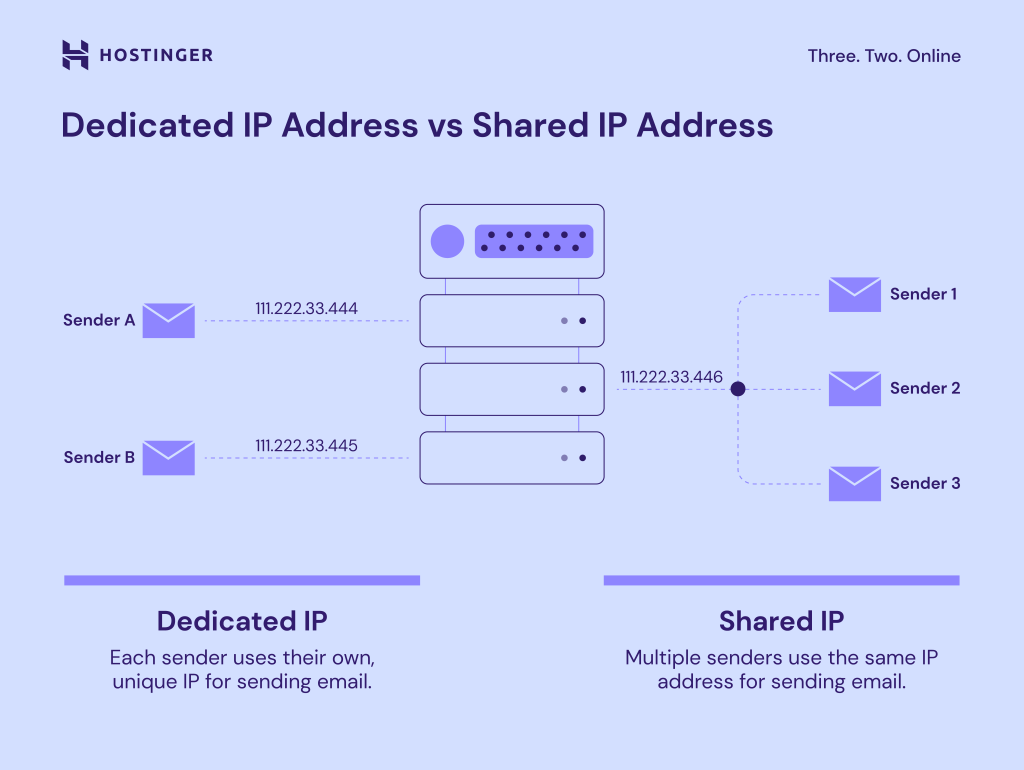Last year, while grappling with traffic spikes during a product launch, I stumbled upon the world of cloud hosting. It sounded intriguing but filled with acronyms and tech jargon. Was it really worth the hype? My journey to discover the truth behind cloud hosting opened doors to new efficiencies for my growing business and perhaps might do the same for you. Let’s dive into what cloud hosting means, its diverse advantages, and how to pick the right provider for you.
Table of Contents
ToggleThe Real Deal: What is Cloud Hosting?
When I first heard about cloud hosting, I was curious. What makes it different from traditional hosting? Well, let me break it down for you.
Defining Cloud Hosting
Cloud hosting is a modern approach to web hosting that utilizes cloud technology. Unlike traditional methods, which rely on physical servers, cloud hosting uses virtual servers. This means that instead of being tied to one physical location, your website can draw resources from multiple servers spread across different locations. Imagine having a team of servers working together to keep your site running smoothly, rather than just one lone server trying to handle everything.
How Cloud Servers Work
So, how do cloud servers actually work? In a nutshell, they rent out virtual space from a third-party provider. This eliminates the headaches associated with managing your own data centers. I remember the stress of trying to keep my own servers running. It was a lot of work! With cloud hosting, the provider takes care of server maintenance and protection. This allows me to focus on my business instead of worrying about technical issues.
- Flexibility: Cloud hosting offers superior uptime and flexibility compared to traditional options.
- Scalability: You can easily scale resources up or down based on your needs.
- Cost-Effective: It can be more budget-friendly for businesses without in-house technical expertise.
My Personal Experience
Transitioning from traditional hosting to cloud hosting was a game-changer for me. I had been using shared hosting for years, which often led to slow loading times and downtime during peak traffic. With cloud hosting, I noticed a significant improvement. My website became faster and more reliable. Plus, I didn’t have to worry about server management anymore.
As I explored cloud hosting, I found that it’s especially beneficial for high-traffic websites. For instance, during promotional events, my site could handle the increased traffic seamlessly. This is crucial for any business aiming to thrive in a competitive market.
“Cloud hosting is a modern solution that allows businesses to thrive without the limitations of traditional hosting.” – [Expert Name]
In conclusion, cloud hosting stands out as a superior option for many businesses. It combines the power of multiple servers with the ease of management, making it an attractive choice for anyone looking to enhance their online presence. If you’re considering a switch, I highly recommend exploring cloud hosting options. You might just find it’s the solution you’ve been searching for.
Why Cloud Hosting? Key Benefits
As I delve into the world of cloud hosting, I can’t help but notice its remarkable advantages. Cloud hosting is not just a trend; it’s a game changer for businesses of all sizes. Let’s break down some of the key benefits that make cloud hosting a compelling choice.
1. Unmatched Scalability
One of the standout features of cloud hosting is its unmatched scalability. Imagine your website is experiencing a sudden surge in traffic—perhaps due to a viral post or a major sale. With traditional hosting, this could lead to crashes or slowdowns. But with cloud hosting, you can easily scale your resources up or down. This flexibility allows businesses to adapt to their customers’ needs without overcommitting resources. As an expert once said,
“The scalability of cloud hosting allows businesses to adapt to their customers’ needs without overcommitting resources.” – [Expert Name]
2. Reduction in Overhead
Another benefit is the reduction in overhead costs with managed services. When I think about the expenses associated with maintaining physical servers, it’s overwhelming. With cloud hosting, the provider takes care of server maintenance, updates, and security. This means I can focus on what really matters—growing my business. It’s like having a personal assistant who handles all the technical stuff while I strategize my next move.
3. Enhanced Security Measures
Security is a top concern for any online business. Cloud hosting offers enhanced security measures that are often superior to traditional hosting. Data is stored across multiple servers, which means if one server fails, my data is still safe. Plus, many cloud providers implement advanced security protocols to protect against cyber threats. I feel more secure knowing that my sensitive information is well-protected.
4. Ideal for Data-Intensive Applications
Cloud hosting is particularly beneficial for eCommerce and media sites that require robust solutions. These platforms often handle large amounts of data and traffic. Cloud hosting can manage this without crashing. For instance, during peak shopping seasons, I can rely on cloud hosting to keep my online store running smoothly.
5. Reliable Performance
My exploration of cloud hosting reveals that it provides stable and reliable website performance. Unlike traditional hosting, where downtime can be a frequent issue, cloud hosting ensures that my website remains accessible even during high traffic periods. This reliability is crucial for maintaining customer trust and satisfaction.
In summary, cloud hosting stands out for its scalability, cost-effectiveness, security, and reliable performance. It’s a solution that can meet the demands of modern businesses, allowing us to focus on growth and innovation.
Navigating the Hosting Landscape: Comparing Options
When it comes to web hosting, the choices can be overwhelming. I often find myself asking: How does cloud hosting stack up against shared, VPS, and dedicated hosting? Each option has its unique features, benefits, and drawbacks. Let’s break it down.
1. Understanding the Hosting Types
- Shared Hosting: This is the most affordable option. However, it comes with limitations. You share server resources with other users, which can lead to slow performance during peak times.
- VPS Hosting: Virtual Private Server hosting offers dedicated resources. It’s a step up from shared hosting and provides more control. But it requires some technical know-how.
- Dedicated Hosting: This gives you an entire server to yourself. It offers the best performance and control, but it’s also the most expensive option.
- Cloud Hosting: This is where things get interesting. Cloud hosting uses multiple servers to balance the load and maximize uptime. It’s scalable, meaning you can easily adjust resources as your business grows.
2. Cost-Effectiveness and Performance
In my experience, cost-effectiveness is a major factor when choosing a hosting type. Shared hosting is cheap, but it can lead to frustration with slow load times. VPS hosting is more expensive but offers better performance. Dedicated hosting, while powerful, can break the bank.
Cloud hosting, on the other hand, strikes a balance. It’s often priced competitively and provides excellent performance. I’ve noticed that during traffic spikes, cloud hosting can handle the load without a hitch. This is a game-changer for businesses that experience fluctuating traffic.
3. Selecting the Best Option for Your Business Needs
Choosing the right hosting solution depends on your specific needs. Ask yourself:
- What is my budget?
- How much traffic do I expect?
- Do I have the technical skills to manage a VPS or dedicated server?
For many small businesses, shared hosting may be sufficient. But as you grow, you might find it lacking. VPS hosting is a good middle ground, while dedicated hosting is best for large enterprises with high traffic.
Ultimately, I believe that cloud hosting is a strong contender for most businesses. It offers flexibility and scalability, which are essential in today’s fast-paced digital landscape. As I often remind myself,
“Each hosting type serves its purpose; understanding these can guide you to the perfect solution for your needs.” – [Expert Name]
In conclusion, navigating the hosting landscape requires careful consideration. By understanding the differences between these options, I can make an informed decision that aligns with my business goals.
Finding Your Perfect Fit: Selecting a Cloud Hosting Provider
When it comes to choosing a cloud hosting provider, the options can be overwhelming. I’ve been there, sifting through countless providers, trying to find the right one. So, what should we look for in a cloud hosting provider? Let’s break it down.
1. What to Look For
- Reliability: You want a provider that guarantees uptime. Downtime can cost you money and customers.
- Scalability: As your business grows, your hosting needs will change. Choose a provider that can scale with you.
- Security: Look for features like SSL certificates and DDoS protection. Your data’s safety should be a top priority.
These factors are essential. But they are just the beginning. We also need to evaluate the features and support each provider offers.
2. Evaluating Provider Features and Support
Not all cloud hosting providers are created equal. Some offer more features than others. Here are a few key features to consider:
- Customer Support: 24/7 support is a must. You never know when you might need help.
- Ease of Use: A user-friendly interface can save you time and frustration.
- Migration Tools: How easy is it to migrate your existing site? A smooth migration process can save you headaches.
Hostinger, for example, has a user-friendly migration process that is a game changer! It allows you to transfer your existing website within 24 hours while keeping your site online. This is a huge plus for anyone looking to switch providers.
3. Migration Made Easy
Speaking of migration, let’s talk about how easy it is to move your site. If you’re like me, the thought of migrating can be daunting. But it doesn’t have to be. A good cloud hosting provider will offer tools and support to make this process seamless.
When I switched to Hostinger, I was pleasantly surprised by how straightforward it was. They guided me through each step, ensuring that my website remained operational during the transition. This kind of support is invaluable.
“Choosing the right cloud provider is as crucial as the cloud technology itself.” – [Expert Name]
In my journey, I’ve learned that considering various providers is essential. Evaluating factors like pricing and performance will help determine the best fit for your needs. Remember, the right provider can make all the difference in your online success.
Conclusion: Is Cloud Hosting Right for You?
As I wrap up my exploration of cloud hosting, I can’t help but reflect on its numerous benefits. Cloud hosting offers a unique way to scale without constraints. This flexibility is particularly attractive for businesses of all sizes. Whether you’re a startup or an established enterprise, cloud hosting can cater to your specific needs.
Summarizing the Benefits
First, let’s summarize the key advantages of cloud hosting:
- Scalability: You can easily adjust resources based on your needs.
- Performance: Cloud hosting often provides superior uptime and speed.
- Cost-Effective: You pay for what you use, making it budget-friendly.
- Reliability: With multiple servers, your site remains operational even during high traffic.
These benefits make cloud hosting a compelling option. It allows businesses to focus on growth rather than technical challenges. Imagine not having to worry about server maintenance! That’s a game-changer.
Looking Ahead
As I think about my future web projects, I see cloud hosting as a vital component. The digital landscape is ever-changing, and having a flexible hosting solution is crucial. I envision launching new websites and applications that can adapt to user demands. Cloud hosting will allow me to do just that. It’s not just about today; it’s about being prepared for tomorrow.
Explore Cloud Hosting Options
So, are you ready to take the plunge? I invite you to explore cloud hosting options today. Providers like Hostinger offer various plans tailored to different needs. With a 30-day money-back guarantee, you can try their services risk-free. This is an excellent opportunity to experience the benefits of cloud hosting firsthand.
In conclusion, my deep dive into cloud hosting reveals its capacity to support various business needs. From startups to established enterprises, it presents solutions tailored to meet evolving demands. The future is bright for those willing to embrace this technology. Let’s harness the power of cloud hosting and ensure our online presence thrives in an increasingly competitive digital landscape.
TL;DR: Cloud hosting offers scalable solutions with superior uptime and performance benefits, ideal for growing businesses and high-traffic websites. Understanding its functionality, benefits, and comparisons will guide you in selecting the best hosting provider.




